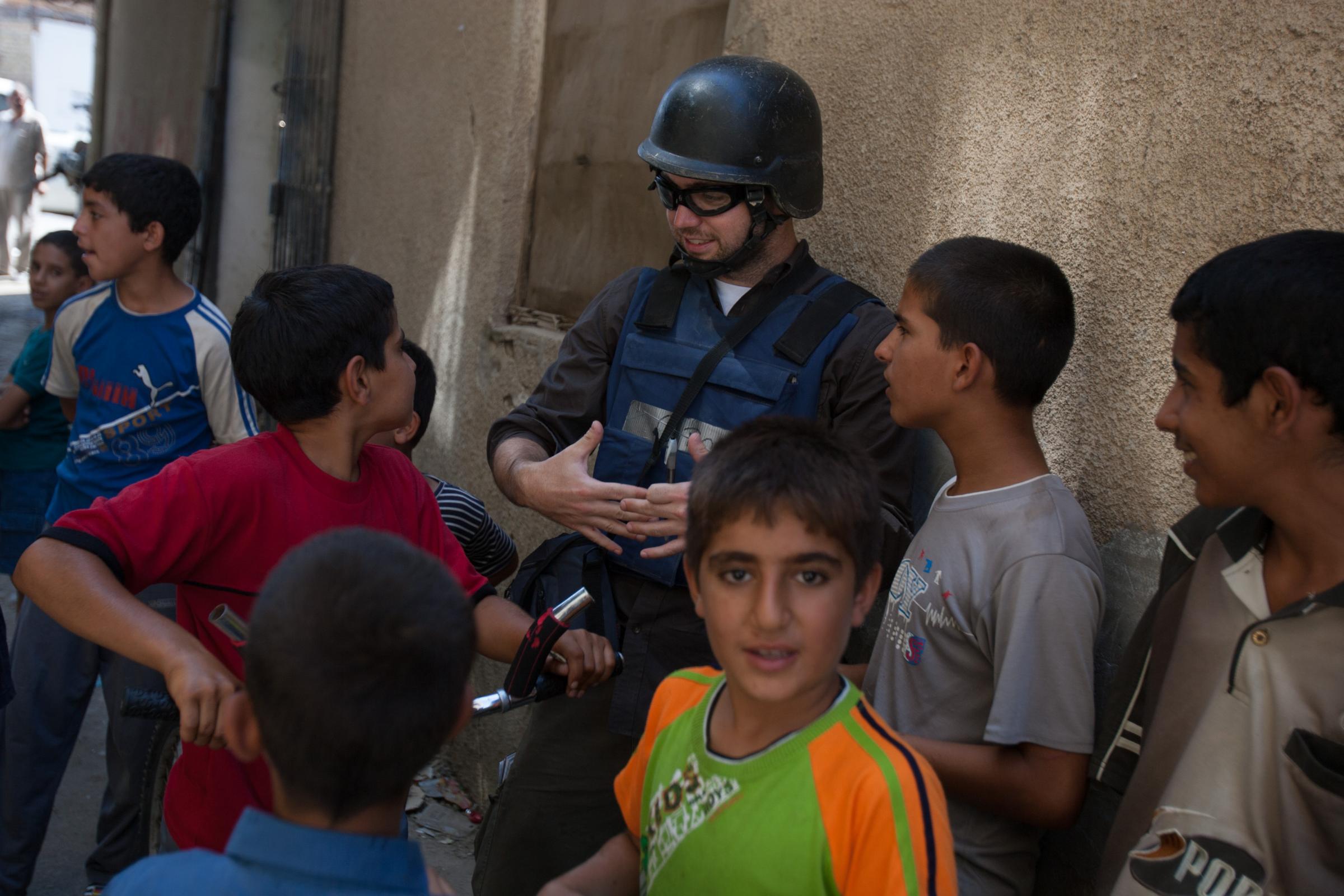
Audiences are constantly frustrated and baffled by what becomes “news,” what gets ignored and which stories go on and on — the hours spent salivating over another book by Hillary Clinton wholly devoid of news, for instance. Who decides all this stuff? My late husband Michael Hastings channeled his frustration with the media’s choices into a work of fiction, The Last Magazine, which comes out next week.
Michael is best known for his acclaimed Rolling Stone profile that unintentionally brought down General Stanley McChrystal. But the story closest to his heart was all but invisible until last week: the plight of prisoner of war Sergeant Bowe Bergdahl. Before Bergdahl has made it out of a hospital in Germany, he’s been called a deserter and traitor. The media’s self-centered bastardization of “news” inspired Michael, from his first days as an intern and cub reporter at Newsweek throughout his career.
Sergeant Bergdahl’s story did not gain traction until his release became politicized. Everyone in the media understands why. Most of the men and women in the industry hate it too. But they live with it, some quite complacently. But what happens when they don’t?
After years of reporting on Iraq and Afghanistan — watching what he called “jaw-dropping news” rarely break into the news cycle — Michael decided to go after the human stories behind the wars: what people really say, how people really act, the things they really believe. “If nobody died, war would be NFL football. But people die, and that’s the cost. You lose people and their futures,” Michael said. He cared about lost futures and discounted the accounting: “We fixate on the numbers, and we get numb.”

While reporting Bergdahl’s story, Michael had his own problems sleeping, pacing our apartment through the night and chain-smoking cigarettes as he worked on the story. He agonized over the possibility that a casual detail might incite Bergdahl’s captors to behead the young soldier. Michael thought it was the most important story of his career, and he was sure the story would break through the news cycle. He readied for attacks, like the vitriol from colleagues that he confronted following his McChrystal profile. No one seemed to care.
Bergdahl wasn’t powerful. So Bergdahl languished — wasting away, physically shrinking, escaping only to be recaptured and locked in a metal box, tortured — in captivity, until the Obama Administration decided to accept the same exact terms proposed by the Afghan Taliban, two years later, as originally reported in Michael’s story.
I listened to Michael and his reporting partner Matt Farwell’s interviews with the Bergdahl family this weekend and was struck by all the material that is still vital to understanding such a complex tragedy — the material Michael couldn’t fit into a single profile. Like when Bergdahl’s father Bob laments the U.S. government’s decision to make freeing Raymond Davis from Pakistan a priority: ”So if you’re a CIA Blackwater mercenary, you get the red carpet extraction, but if you’re just a grunt who happens to be the victim of war …” His father’s voice trails off. “I think worst-case scenario, he’s a psychological casualty. Thank God [he] didn’t commit suicide.”
With McChrystal, Michael was fascinated by how someone can kill so many, however honorable the intentions, yet never seem to lose an hour of sleep. (Or in McChrystal’s case, even need sleep in the first place.) In young Bergdahl, Michael saw the complete opposite of the four-star. McChrystal exuded power; Bergdahl lacked it, so he lacked a voice. When a sensitive 22-year-old from Idaho went missing from a remote outpost in Afghanistan, Michael asked the question few others bothered with: Why?
We’ve seen the personal destruction of a decade-plus of war: drugs, suicides, broken marriages and posttraumatic stress. Through it all, Bergdahl lay awake on a cot, likely in a sleeping bag under a mosquito net, alone in the world, in what many describe as the edge of civilization. What drove a teetotaler, a voracious reader and ballet dancer, to such an extreme decision? What was he thinking?
Michael knew, of course, that without Bergdahl’s side of the story, he’d never have a definitive answer. And we still have that answer ahead of us — a reality that insensitive politicians and media commentators ignore as they pass judgment on a young man still in psychological hell after being tortured and enduring the unimaginable.
But Michael got more to the truth of Bergdahl’s actions and his motivations than any other journalist reporting the story today. We need to wait until Bergdahl’s ready to talk to find out why, instead of wildly overplaying certain unknowns and ignoring others. Michael would have been disgusted by the exploitation of personal tragedy for craven ends. What would serve us even better right now is a wider canvas, someone stepping back to analyze and satirize the whole process. Someone on the inside, but a rebellious voice, refusing to answer to anyone but his readers. To state the obvious: it’s one of the many reasons I miss Michael Hastings.
Jordan is a writer and political commentator. She is a former speechwriter for Secretary of State Condoleezza Rice and director for communications at the National Security Council.
More Must-Reads from TIME
- Donald Trump Is TIME's 2024 Person of the Year
- Why We Chose Trump as Person of the Year
- Is Intermittent Fasting Good or Bad for You?
- The 100 Must-Read Books of 2024
- The 20 Best Christmas TV Episodes
- Column: If Optimism Feels Ridiculous Now, Try Hope
- The Future of Climate Action Is Trade Policy
- Merle Bombardieri Is Helping People Make the Baby Decision
Contact us at letters@time.com